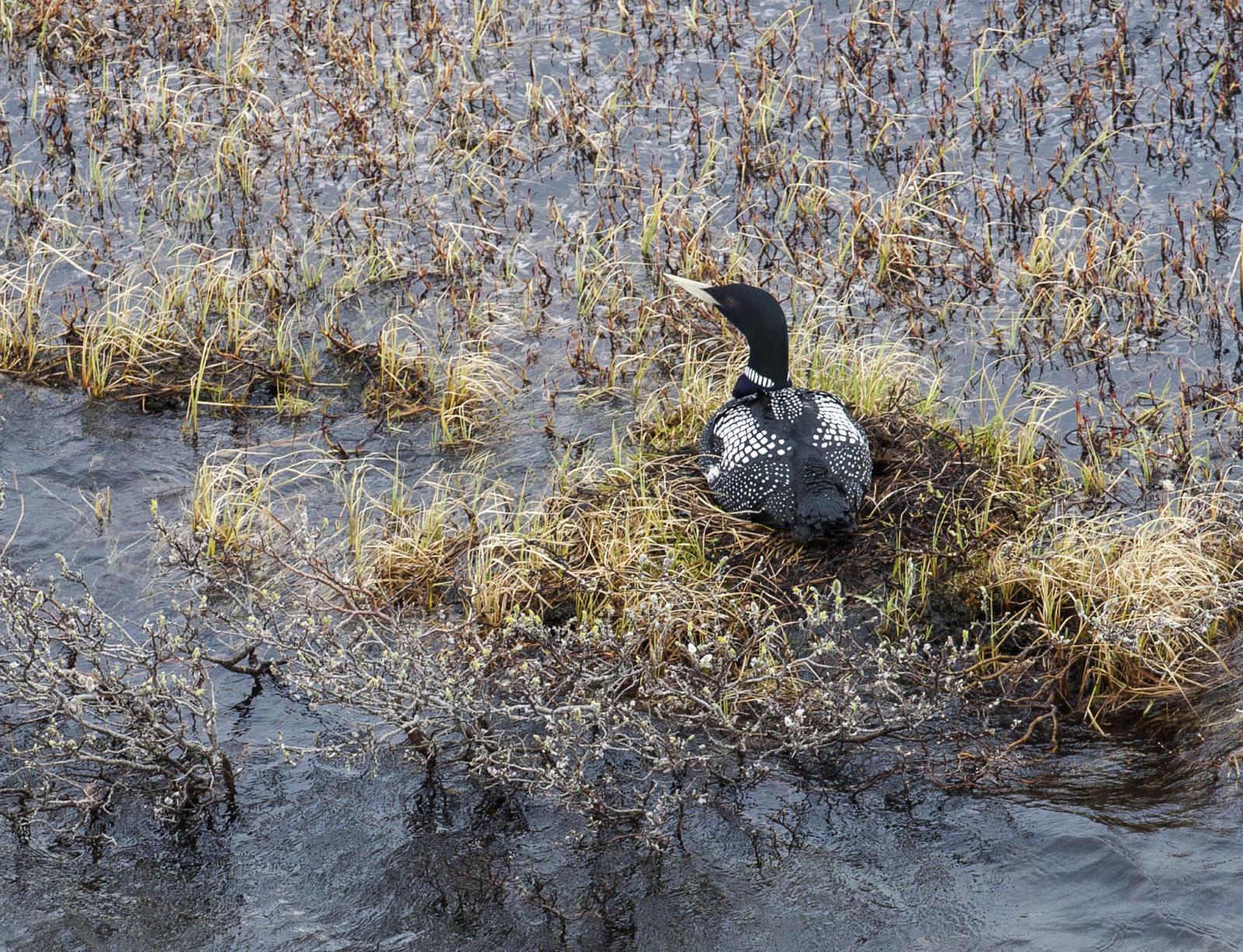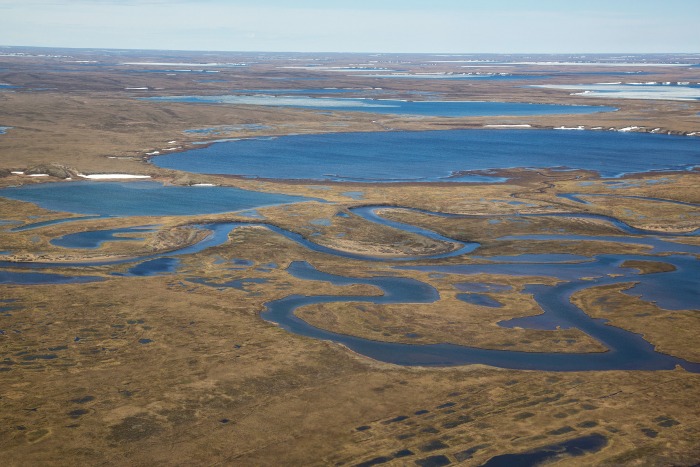
Court stops massive Willow oil project in western Arctic
We got good news late Saturday, Feb. 13, when the Ninth Circuit Court of Appeals granted our motion for an emergency order stopping blasting, gravel mining, and road construction on the ConocoPhillips’ Willow project.

On-the-ground construction would do real and immediate harm to the environment and to the Iñupiat of Nuiqsut, who already suffer the consequences of industrialization in their backyard. Now, a federal appellate court found that exploitive oil and gas activities, including the infrastructure, irreparably harms the environment and indigenous people and is contrary to the public interest. This is something many people have known for a long time.
The Ninth Circuit’s ruling stops that harm from happening while our lawsuit — calling out the faulty environmental review and unlawful decisions authorizing the project — awaits its day in court.
It’s a little complicated, so bear with us as we untangle the legal pieces.
First the lawsuit, then the motions
In November 2020, we filed a lawsuit on behalf of six clients in District Court, calling out several agencies for violating multiple laws when approving ConocoPhillips’ enormous oil and gas project in the western Arctic.
Those same agencies rubber-stamped permits as ConocoPhillips requested them, meaning the company planned for winter construction, despite the lawsuit. In late December we filed a motion to stop those construction activities while the lawsuit makes its way through court.
The District Court rejected that motion, and we immediately appealed to the Ninth Circuit and, because of the fast timeline, requested that it grant an emergency order stopping construction while it rules on the appeal.

ConocoPhillips was set to begin its destructive activities on Feb. 12. So, we also needed to request the District Court put a halt on gravel mining and construction activities as the rules require. The judge issued a temporary order on Feb. 6 so the Ninth Circuit would have time to rule on the emergency motion—which it did Saturday night, extending that halt on construction until it rules on the appeal later this spring.
Though all this sounds convoluted, each legal piece sought to prevent harm so that a project approved through a botched process that violated the law can’t do damage before the decision-making agencies are held accountable.
What might look like just a flurry of legal filings from the outside matters deeply to those who live in the region and rely on the land, water and animals.
Real and immediate
The court recognized in its decision that these industrial activities would cause “irreparable harm” to the land, water, food interests, and ways of life of people in Nuiqsut.
The village is already surrounded by oil and gas rigs, infrastructure, and the accompanying blasting and pollution.
Siqiñiq Maupin, executive director of Sovereign Iñupiat for a Living Arctic, our lead client in the lawsuit, has described during public hearings and in news interviews the rising health issues and the erosion of traditional practices and access to food sources caused by oil extraction and industrialization.
She has decried the silencing and paternalism of the agencies overseeing the environmental review and approval process, and called out their bias toward corporate profit interests over the health of frontline communities.
“We need the exploitation of the Arctic to stop and the prioritization of our health and well-being to begin again,” she told the Cordova Times.
First, do no harm

Which brings us to the good news again. The latest Ninth Circuit decision halts construction activities until it rules on SILA’s appeal.
The Ninth Circuit agreed there would be irreparable harm to land and the community of Nuiqsut. It also found that SILA raised serious questions as to whether the BLM violated NEPA, that the balance of equities “tips sharply” in favor of SILA, and found that an injunction is in the public interest.
We hope to get more good news when the Ninth Circuit rules on the appeal in a few months, and again when the District Court rules on the merits of the lawsuit as a whole.
The Willow project gained its approvals through a process plagued by huge flaws and broken laws. Allowing Conoco to proceed while the lawsuit is ongoing only entrenches the project at the expense of frontline communities. The land, water, animals and people of the region shouldn’t suffer while the lawsuit charging agencies with these violations awaits its day in court. And as a result of this ruling from the Ninth Circuit, they won’t have to.


